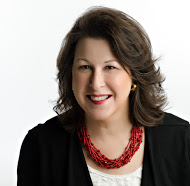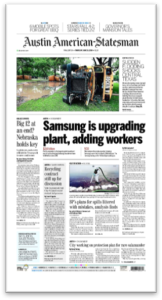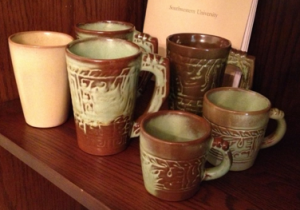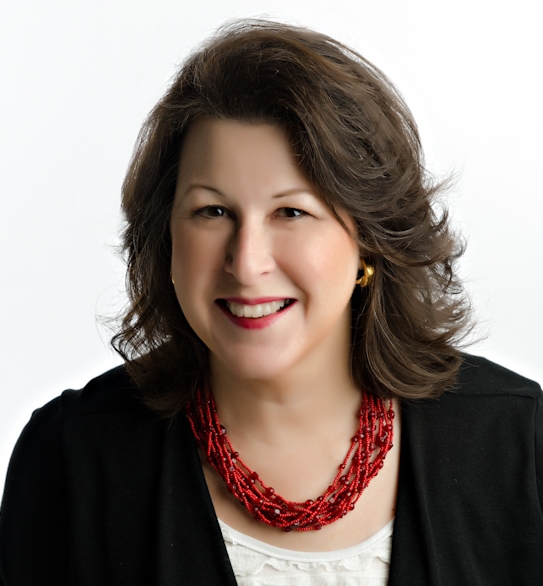Written by Katie McKee.

Sandra Kleinsasser
As a former editor at the Austin American-Statesman and mainstay of Women Communicators of Austin, the least we can say is Sandra Kleinsasser is accomplished. Kleinsasser was previously chosen as WCA’s April Member Spotlight, but now has more distinction to add to her plate as this year’s Gladys Whitley Hearst Outstanding Member.
Kleinsasser spearheads WriteAustin.com and is on WCA’s Freelance Austin committee, where she was instrumental in refreshing the programs, securing topics and speakers, and contributing ideas to other committee initiatives. Previously, she managed the monthly “Ask a Mentor” column on the WCA blog and has been a speaker at both Careers Over Coffee and Get Smart.
In light of Kleinsasser’s recent accolades, we spoke with her to find out what makes her tick as well as what advice she offers to other communicators.
Q: How did you get started in the communications field?
A: As a kid, I was bossy, nosey and very picky — key traits for an editor, I would learn later. I worked on the school paper in high school and I studied journalism in college. I graduated early and worked at three newspapers by the time I was 24.
Q: Tell us about your communications experience and your current position.
A: Call me semi-retired! I work part-time as a freelance editor and writer for some technical-related businesses and consultants. My company is WriteAustin.com and mostly I handle newsletters, blogs, web content and press releases.
I spent most of my career in the news business, including 31 years at the Austin American-Statesman, where I was executive news editor when I accepted a buy-out in 2011. More than three decades as a journalist is a remarkable milestone and I am proud of those years. I led editing teams that met the daily challenges of relentless deadlines, breaking news, Austin weirdness and the ongoing need to “do more with less.” The memories of working on news stories are dramatic – 9/11, Katrina, Memorial Day floods, Fort Hood shootings, and the day in the early ‘80s when a national editor told me, “This AIDS thing is going to be big.”

June 10, 2010 cover of the Austin American-Statesman
As an example, I was in charge of the Thursday, June 10, 2010 front page when a major Samsung expansion was announced, a flood swept through Central Texas, BP mistakes were aired and the end of the Big 12 was foreshadowed. Oh, and Austin was saving a salamander, too. What a news day!
Just as dramatic as the news stories were the changes in our communications world brought by the march of technology. My memories include the arrival of digital photography and pagination, a co-worker showing me how to “Google,” the first cellphone (we called it a purse phone) in the newsroom, the debut of Twitter at SXSW and learning to use email! One of the first PCs in the newsroom was on my desk and I had a box of floppy discs to go with it. It was a Dell and we drove all the way to Round Rock to pick it up.
Eventually, technology introduced opportunities for the news business to downsize and for me, it created the opportunity to explore a career outside of journalism. I left the paper and began freelancing, with a two-year detour handling internal communications for a state agency. I learned a lot at the agency and did my best to spread the gospel of clear writing, plain language and strategic messaging.
After a couple of years, I realized that freelancing offered the flexibility that I want in my life now, so I chucked my secure state job to concentrate on freelance. Now I work when and how I want.
Q: What are you most passionate about professionally?
A: I have always had a passion for efficiency. As an editor and writer that translates to delivering a clear, direct message. Clarity contributes to credibility and value. As a manager and organizer, that means fine-tuning processes, plans and protocols to avoid wasted effort. As a trainer and coach, it means helping others avoid meandering writing and the jargon jungle.
Q: How long have you been a WCA member? What roles have you served in WCA over the course of your membership?
A: I joined WCA in early 2012 and was asked to speak at Get Smart that fall. I soon joined the Mentoring Committee and when the group decided to start the Ask a Mentor column, I volunteered to coordinate the new contribution. I wrangled that column for about two years before stepping down, but I still mentor members who seek my help. Plus, I participate in Speed Mentoring events as often as I can. I’ve also enjoyed being a part of Freelance Austin and became Program Coordinator in 2015.
Last September I was invited to speak at Careers over Coffee South about strategic blogging, based on some basic steps I had developed for a client. This was one of my favorite events ever, as the audience included friends from across all branches of my career: state co-workers, newspaper colleagues, Freelance Austin members and even loyal neighbors!
Q: What has kept you an active member of WCA? What do you love most?
A: As I begin to wind down my career, I am grateful for a way to share some of the lessons I have learned the hard way over the years. In WCA, maturity and experience are valued. I also love meeting new people, learning about their communication careers and encouraging their success.

Part of Sandra’s pottery collection
Q: What are some of your favorite things to do outside of work?
A: One of my guilty pleasures is shopping second-hand stores and garage sales for kitschy ‘50s cowboy things to fill up our vacation house. Any other Frankoma pottery fans out there?
Q: What advice can you give others about making the most of their WCA membership?
A: WCA members are the most generous, supportive group of professionals I have ever met. Make the most of your membership by listening and learning from fellow members. Don’t be afraid to raise questions or to ask for help when you need it.
Katie McKee is an account executive at Elizabeth Christian Public Relations.
- Announcing Our 2016-2017 Board of Directors - May 31, 2016
- Freelance Corner: Making Impressions, Copyright FAQs and Nixing Procrastination - May 25, 2016
- Austin’s Best Kept Secrets: Swimming Holes - May 24, 2016

